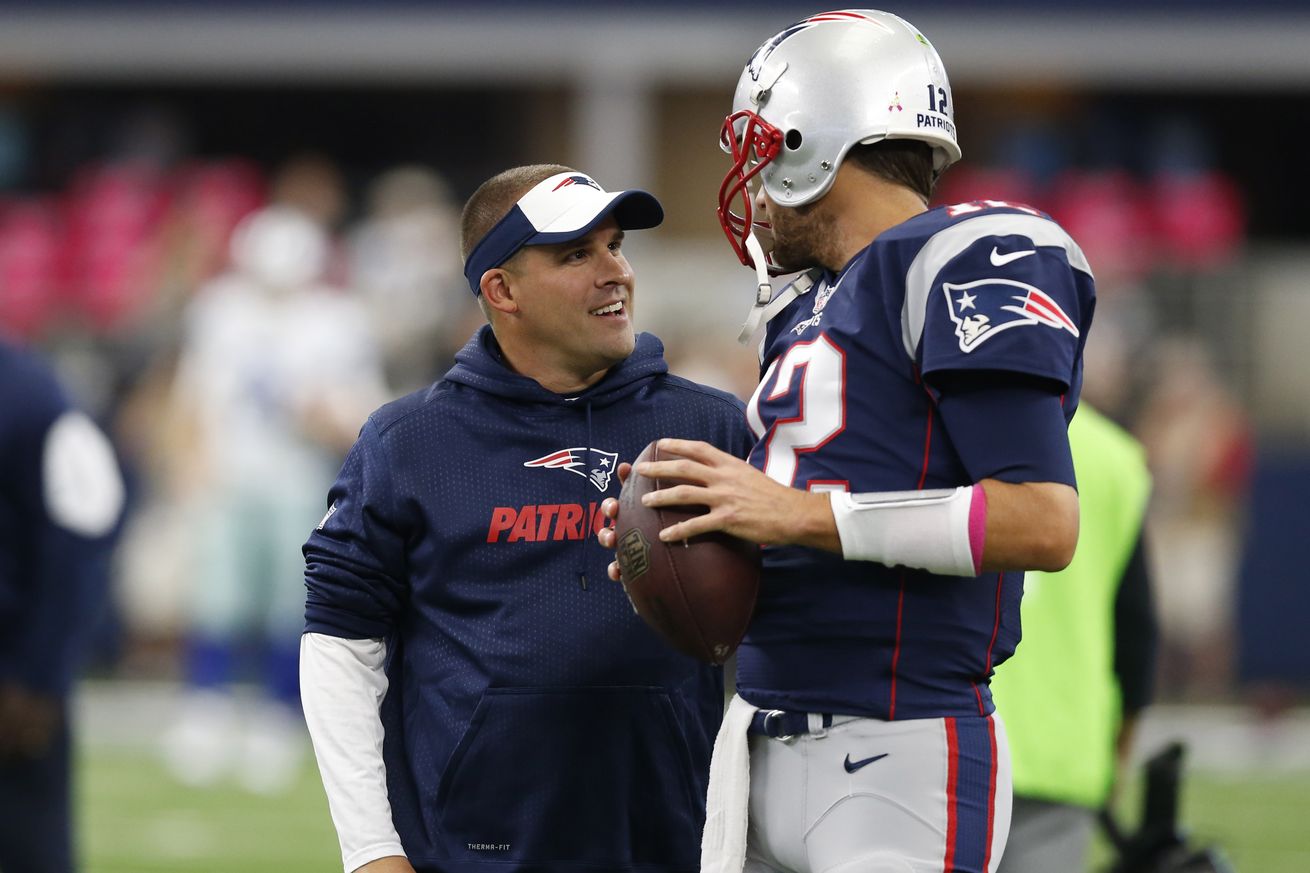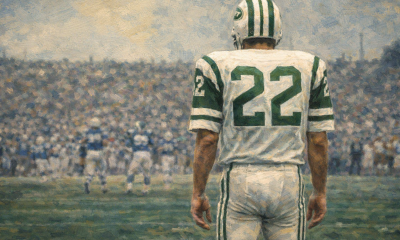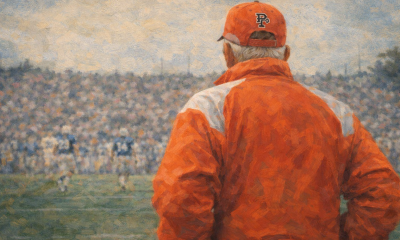
The New England Patriots and their offensive coordinator Josh McDaniels are back in the Super Bowl for the second time in three seasons. They’ll take on the Atlanta Falcons in Houston on February 5. A big key to their success has been their versatility and that’s turned into a Super Bowl victory in 2014 and six straight AFC Championship game appearances.
Whether they were a balanced offense in 2012 and 2013 or the offense was driven by a heavy aerial attack as it was in 2014 and 2015, the Patriots have finished in the top five in the NFL in points scored in the last five seasons.
New England’s strength this year has been the running game. The Patriots finished third in the regular season in rushing attempts, seventh in rushing yards and fifth in rushing touchdowns. Aided by the solid interior line play of Shaq Mason, Joe Thuney and David Andrews, LeGarrette Blount wound up being the Patriots’ most valuable offensive player with 1,161 rushing yards and 18 rushing touchdowns, which led the league.
The Patriots’ passing game dealt with significant changes all season beginning with the suspension of Tom Brady. Jimmy Garoppolo and Jacoby Brissett filled the void for the first four games of the season. Once Brady came back, it was their star tight end Rob Gronkowski who be done for the year and put on injured reserve with a herniated disk halfway through the season. Despite all this, The Patriots still passed the ball effectively by ranking fourth in passing yards, sixth in passing touchdowns and first in fewest interceptions thrown.
In the postseason, the passing game has stepped back into the spotlight, particularly Chris Hogan. He was the star in last week’s AFC Championship game, finishing with nine catches for 180 yards and this flea flicker against the Pittsburgh Steelers.
Ultimately, McDaniels could view the running game as the key to winning the Super Bowl.
The Falcons allowed 4.5 yards per carry during the season, which is tied for fourth most in the league and they have allowed an average of 100 rushing yards in the last two games.
The Falcons’ strength on defense is with Vic Beasley rushing the passer, along with help from Dwight Freeney and Grady Jarrett. Beasley led the NFL with 15.5 sacks this year.
The Patriots offense is also vulnerable when the opposing defense is getting pressure on Brady as the Houston Texans did in the divisional round. A steady ground game also provides an extra strategic advantage in keeping the Falcons offense off the field. Atlanta rolls into Houston averaging 457.5 yards and 29 first downs in their two playoff games.
The majority of McDaniels’ coaching career has been with the Patriots. He was born in Saginaw, Texas. At age 23, he was a graduate assistant at Michigan State under Nick Saban in 1999. McDaniels joined Bill Belichick’s coaching staff in 2001 as a personnel and coaching assistant. The Patriots won their first Super Bowl that year. Two years later, the Patriots won their second Super Bowl with McDaniels as a coaching assistant. They won back-to-back Super Bowls in 2004 after McDaniels became the quarterbacks coach for two years. He was promoted to offensive coordinator in 2006.
McDaniels’ run as the coordinator included the Patriots’ undefeated 16-0 season in 2007 after they acquired wide receiver Randy Moss and the following season in 2008 when Tom Brady missed the season with a knee injury. Matt Cassel was the starting quarterback, and despite missing the playoffs for just the third time in Belichick’s tenure, the Patriots still went 11-5 and their offense finished eighth in points and fifth in yards.
McDaniels tried going his own way for three years from 2009 to 2011. He was the head coach of the Denver Broncos for two years. He showed promise after his first season when the Broncos went 8-8. However, internal conflict within the team quickly soured the direction of McDaniels’ tenure. The Broncos went 4-12 in his second season and 3-9 with McDaniels who was fired with four games remaining. The following season he tried being an offensive coordinator with the St. Louis Rams and that experiment was even worse as they went 2-14 and the offense had just nine passing touchdowns.
Meanwhile, the Patriots did what they normally do, which is win the AFC East and make the postseason. The results in the postseason were mixed. They got blown out at home by the Baltimore Ravens in 2009 and then suffered an even bigger disappointment in 2010 when they went 14-2 and Tom Brady won the NFL MVP and they lost at home to the New York Jets. Then in 2011, the Patriots went 13-3 and it looked like they were going to win their fourth Super Bowl, but they met their kryptonite the New York Giants and lost to them for the second time.
McDaniels went back to being the Patriots’ offensive coordinator the following season and since then, McDaniels and the Patriots have realized that everything is better when they are together.
Brought to you by:





















Don’t you mean 6 straight AFC Championship game appearances? 2011-2016
Yes. Our apologies. We have made that correction in the article.
People forget how bad McDaniels was in Denver. He may have been the worst coach in NFL history. He has a good thing going in New England. There’s no reason to leave. This article goes in depth into his time in Denver: http://www.armchairallamericans.com/117496-2/